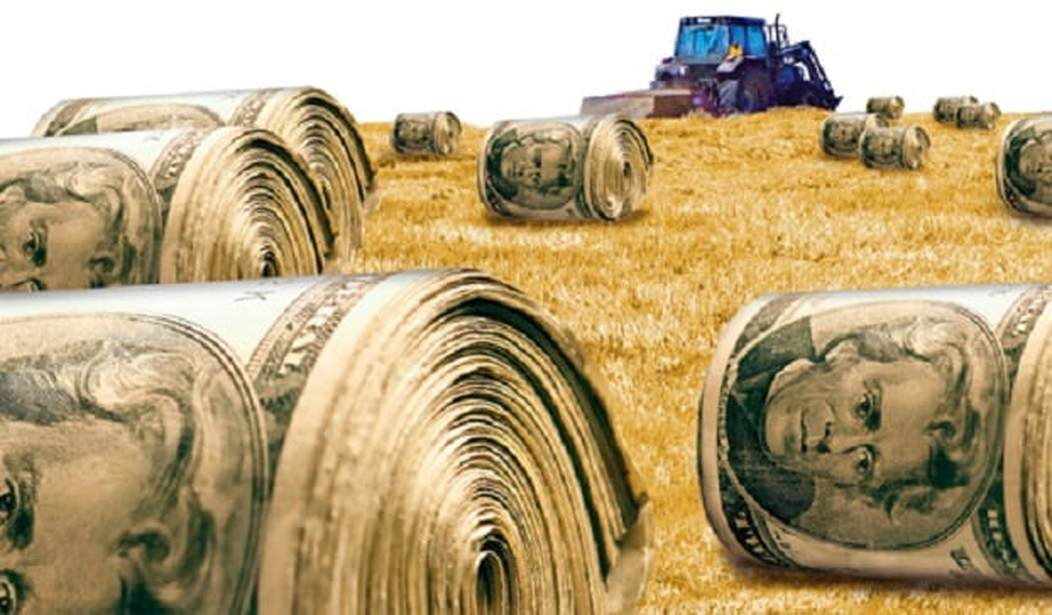
his will come as no surprise for anyone who was paying attention (see the RedState coverage) during the debate of the Farm Bill last winter (or any other debate on any other Farm Bill):
U.S. farmers are about to reap a bumper harvest not just in corn and soybeans but also in new subsidies that could soar to $10 billion, blowing a hole in the government’s promise that its new five-year farm bill would save taxpayers money.
If payments for 2014, the first year the farm bill takes effect, do come in at that level – as some private economists have calculated – they would be more than 10 times the U.S. Department of Agriculture’s working estimate and more than double the forecast by the Congressional Budget Office.
This bill is an abomination that would be more at home in North Korea, Communist China, or the old Soviet Union than in the United States. It is the worst sort of rent-seeking and crony capitalism that enriches a few a drives up the cost of food which has a direct impact on everyone… and it also runs up the costs of the federal food stamp program.

It also is so distorting to agricultural prices worldwide that even the European Union objects.
Writing in Reason Veronique de Rugy predicted at the time:
Senate Agriculture Committee Chairwoman [mc_name name=’Sen. Debbie Stabenow (D-MI)’ chamber=’senate’ mcid=’S000770′ ] (D-Mich.) claims that the extension would save taxpayers money, swapping $3 billion in new payments in exchange for eliminating $4 billion in direct payments. But the crop insurance scheme is likely to cost twice as much as estimated, according to a 2012 American Enterprise Institute study by the economists Vincent H. Smith, Barry K. Goodwin, and Bruce A Babcock. History tells us that it won’t be long before the program resembles the direct payments it was supposed to replace. That’s because, if implemented, these subsidies will kick in at relative low level of losses. Given that prices will surely come down from their current record levels, most farmers will wind up receiving a payment every year.
Direct payments and crop insurance are not the only farm programs in need of termination. Price support programs such as marketing loans are a serious waste of taxpayer money, as are the conservation subsidies that pay farmers not to farm on their land. So are export subsidies, which aid farmers in foreign sales, and countercyclical payments, which compensate for drops in crops’ market prices.
In addition to the direct cost to taxpayers, these subsidies cause enormous economic distortions. Consider the domestic sugar industry. The USDA protects its producers against foreign competitors by imposing U.S. import quotas, and against low prices with a no-recourse loan program that serves as an effective price floor. As a result, the University of Michigan economist Mark Perry reports, Americans have had to pay an average of twice the world price of sugar since 1982.
It is not a good sign that incoming Senate Majority Leader [mc_name name=’Sen. Mitch McConnell (R-KY)’ chamber=’senate’ mcid=’M000355′ ] voted in favor of this behemoth because it gave a federal subsidy to hemp farmers. The new Congress needs to revisit the Farm Bill and ensure the taxpayers aren’t ripped off to this extent again.














Join the conversation as a VIP Member